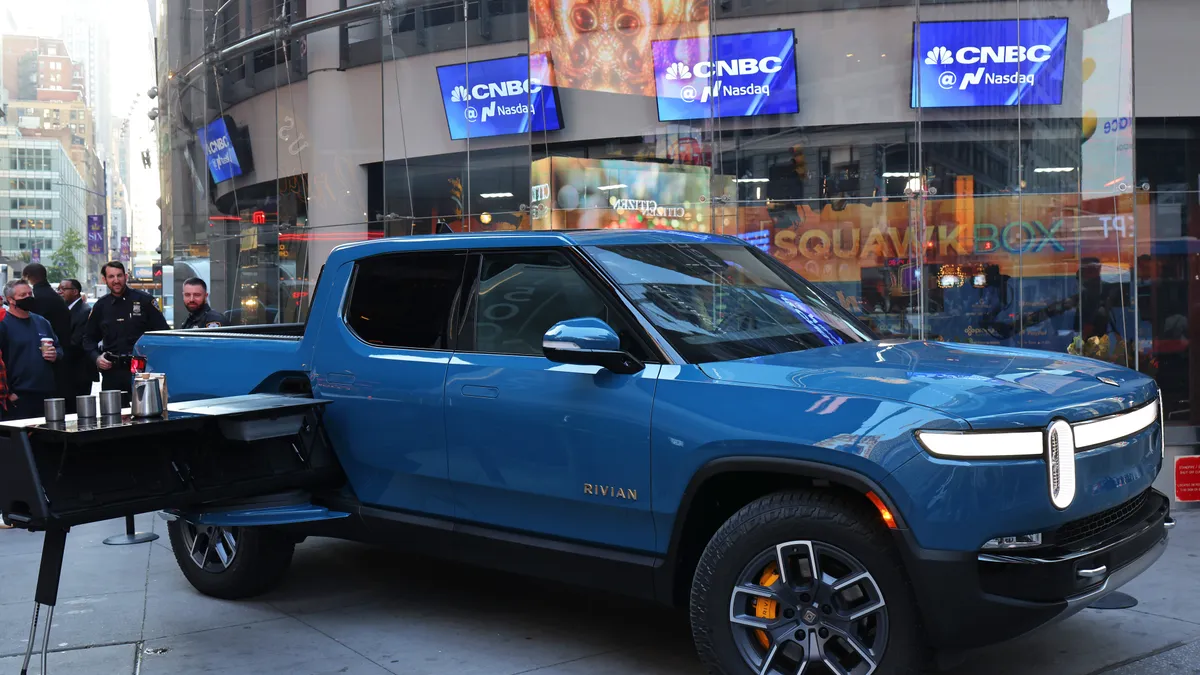CFOs in numerous sectors are moving to secure their companies against a downturn in the U.S. economy as the likelihood of a recession increases.
Despite a July dip in inflation, Federal Reserve Chair Jerome Powell indicated further rate hikes are likely to come from the central bank as it looks to restore price stability. “The historical record cautions strongly against prematurely loosening policy,” Powell said during his Aug. 26 speech at the Fed’s annual policy forum at Jackson Hole, Wyoming.
Financial heads also must confront a growing risk to profit margins and revenues as a potential downturn looms, with recent reports forecasting gross domestic product growth may “slow to barely positive from mid-2023 due to aggressive monetary tightening.”
Automotive CFOs are buffering their companies against such tightening, with many anticipating positive spikes in demand for the remainder of the year amid lingering supply chain challenges due to COVID-19 shutdowns or material shortages.
Raw material and supply chain challenges came into play during the second quarter for electric automaker Rivian Automotive, for example, with CFO Claire McDonough stating the company has seen “unprecedented levels of inflation” in areas such as its raw material inputs.
Prices for lithium have increased more than 115% since the start of the year, she said during the company’s Aug. 11 earnings call and this, “coupled with COVID and other factors…have driven a challenging supply chain and inflationary environment,” she said.
“But as we look out to the future, as I mentioned in my prepared remarks, we have significant confidence in the long-term gross profit margin targets that we’ve set out for ourselves of approximately 25%,” McDonough said.
Rivian produced 4,401 vehicles at the end of the second quarter, reporting $364 million in revenue and negative gross profit of $704 million per its earnings presentation.
Company CEO, Chairman and founder RJ Scaringe also pointed to the Inflation Reduction Act as a potential tailwind for the EV company as well as consumers, stating during its second quarter earnings call that the company was “incredibly happy to see policy that helps drive more rapid adoption of electric vehicles as well as the important investments in building domestic battery cell production.”
The Inflation Reduction Act, an effort to blunt the harm from surging prices, was signed into law by President Joeseph Biden on Aug. 16, five days after Rivian’s earnings call.
While lawmakers worked to ratify such legislation, automakers took steps to prepare for persistent inflation — Detroit automaker General Motors CEO Mary Barra stated the company modeled “several downturn scenarios” on the firm’s July 26 second quarter earnings call and that “we continue to move forward from a position of strength.”
Meanwhile, company CFO Paul Jacobson said demand and vehicle pricing will remain strong despite the supply chain issues and material shortages the automaker is facing — over 90,000 vehicles were left unfinished due to a lack of key materials at the end of the quarter, contributing to a 40% drop in net income as previously reported by CFO Dive.
“I would say that at the end of the day, all the data that we’ve seen to date on vehicle pricing and demand remains strong…we still think that there is a big pocket of demand that hasn’t been met yet,” he said.
GM reported $35.7 billion in revenue for the quarter, a 5% increase. The company is also proceeding with its electric vehicle (EV) plans, with a stated goal of 1 million units in annual EV capacity for North America by 2025.
Supply chain challenges are slowly ebbing, something that could also ease inflationary pressures for auto firms. One recent report estimated that supply chain elements account for about 35% of year-over-year inflation and predicted improvements in the supply chain for the rest of the year with the U.S. Supply Chain Index back above neutral for the first time in almost three years.
Pricing pressures push up gig participation
While many companies are keeping on eye on these and other trends that could impact inflation, the increase in consumer prices contributed to positive effects for entities like Uber during the second quarter.
As CFO Dive previously reported, the uptick in cost of living expenses brought new drivers to its platform as the company reported its first ever positive cash flow of $382 million for the quarter on July 29. The results, far above analyst expectations, fulfilled the rideshare’s ambition to become free cash flow positive by the end of the year, with the company also reporting $8.1 billion in revenue.
More than 70% of new drivers coming to the platform for the quarter pointed to inflation and the rising cost of groceries as at least part of the reason for signing up with the company. Yet Uber itself did not see any “discernable trends” regarding inflation’s impact for the quarter, according to CFO Nelson Chai.
The company has still seen demand spike more due to COVID-19 activity, Chai said during the earnings call, pointing to COVID-19 outbreaks in Japan that led to surges in demand.
“So it's been a little bit more still [about] the COVID trade recovery and things that happen there than we've seen impact on inflation, at least so far,” he said.



















